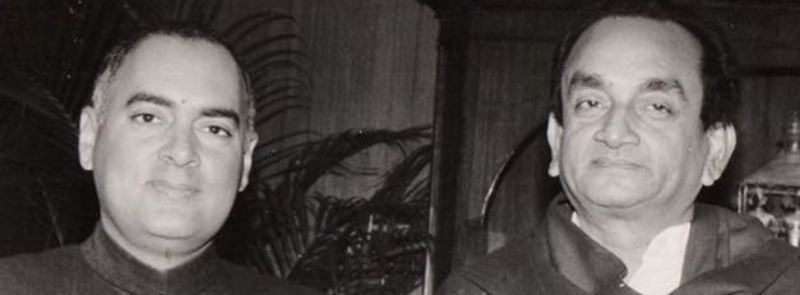
When It Occurs
Every August 20th
Timeline
Days Passed (917)
# Hashtags
#SadbhavanaDiwas #RajivGandhi
Annually on August 20th, Sadbhavana Diwas, also recognized as Harmony Day, is commemorated to pay tribute to the birthday of former Prime Minister Rajiv Gandhi. This day serves as a commitment to foster peace and harmony in our surroundings, advocating for the rejection of violence and the promotion of goodwill among people. In 1992, a year following Rajiv Gandhi's demise, the Congress instituted the Rajiv Gandhi Sadbhavana Award.
Significance of Sadbhavana Diwas
-
Promotion of Communal Harmony:
- The primary goal of Sadbhavana Diwas is to promote peace, harmony, and unity across the country. The day encourages people to rise above communal and societal divisions and work toward a more inclusive and cohesive nation.
-
Commemoration of Rajiv Gandhi's Vision:
- Rajiv Gandhi, who was Prime Minister from 1984 to 1989, envisioned an India that embraced modernity while maintaining social harmony. Sadbhavana Diwas commemorates his efforts in promoting technological advancement, social justice, and peace among India’s diverse communities.
-
Emphasis on National Unity:
- The day is also seen as a reminder to strengthen the idea of India as a united, secular, and democratic nation, where citizens coexist harmoniously regardless of their differences.
Background and History
- Rajiv Gandhi was born on August 20, 1944, and became Prime Minister of India after the assassination of his mother, Indira Gandhi, in 1984. He led the country until 1989 and was instrumental in modernizing India, particularly in the fields of technology, education, and foreign relations.
- His policies focused on promoting communal harmony, and he strongly advocated for the reduction of social and religious tensions. Rajiv Gandhi was assassinated in 1991 by the LTTE (Liberation Tigers of Tamil Eelam), and since then, August 20 has been observed as Sadbhavana Diwas to honor his memory and his vision of a peaceful India.
Celebration and Observance
-
Pledge Ceremonies:
- On Sadbhavana Diwas, many government institutions, schools, and organizations hold pledge ceremonies where participants commit to fostering communal harmony and maintaining peace. The pledge typically emphasizes tolerance, cooperation, and the resolution of conflicts through dialogue.
-
Community Programs:
- Various cultural programs, debates, and discussions are organized across the country, particularly in schools and colleges. These events focus on spreading awareness about the importance of unity in diversity and the need to maintain peace in a pluralistic society like India.
-
Seminars and Workshops:
- Several organizations, especially those working towards social causes, hold workshops, seminars, and lectures to promote the values of non-violence, tolerance, and understanding. The events focus on contemporary issues related to communal disharmony and the role citizens can play in resolving conflicts.
-
Rajiv Gandhi Sadbhavana Award:
- The Rajiv Gandhi Sadbhavana Award is presented annually on this day to individuals or organizations for their outstanding contributions to promoting peace and communal harmony in India. This award reflects Rajiv Gandhi’s vision of a peaceful and prosperous nation that thrives on the values of goodwill and tolerance.
Pledge on Sadbhavana Diwas
One of the key features of Sadbhavana Diwas is the recital of a pledge. The pledge taken by citizens is focused on preserving peace, fostering harmony, and avoiding conflict. It reflects the importance of living in mutual respect and cooperation, vital for a diverse country like India.
The typical pledge includes:
- Commitment to goodwill and mutual respect among all sections of society.
- Upholding the values of secularism and safeguarding national unity.
- Working towards the elimination of social tensions and promoting peace in everyday life.
Relevance of Sadbhavana Diwas
-
Promoting Secularism and Unity:
- As India is a diverse nation with multiple religions, cultures, and languages, Sadbhavana Diwas is a reminder of the importance of communal harmony in maintaining the social fabric. It promotes the idea that unity in diversity is one of India’s greatest strengths.
-
Addressing Social Tensions:
- Given the increasing polarization and communal tensions in certain areas of India, Sadbhavana Diwas provides an opportunity to encourage dialogue, foster understanding, and work toward resolving conflicts through peaceful means.
-
Building Inclusive Communities:
- This day is significant in the context of inclusivity. It reminds citizens and leaders alike to address issues like poverty, inequality, and injustice, which often fuel discord. Rajiv Gandhi’s vision of a modern India included these concerns, and Sadbhavana Diwas reinforces the need to continue working toward an equitable society.
Conclusion
Sadbhavana Diwas is an important observance in India that promotes peace, communal harmony, and national unity. It encourages people to reflect on the values of tolerance, understanding, and cooperation, which are essential for a diverse nation. By commemorating Rajiv Gandhi’s birth anniversary, the day serves as a reminder of the importance of goodwill in ensuring a prosperous and peaceful society.


